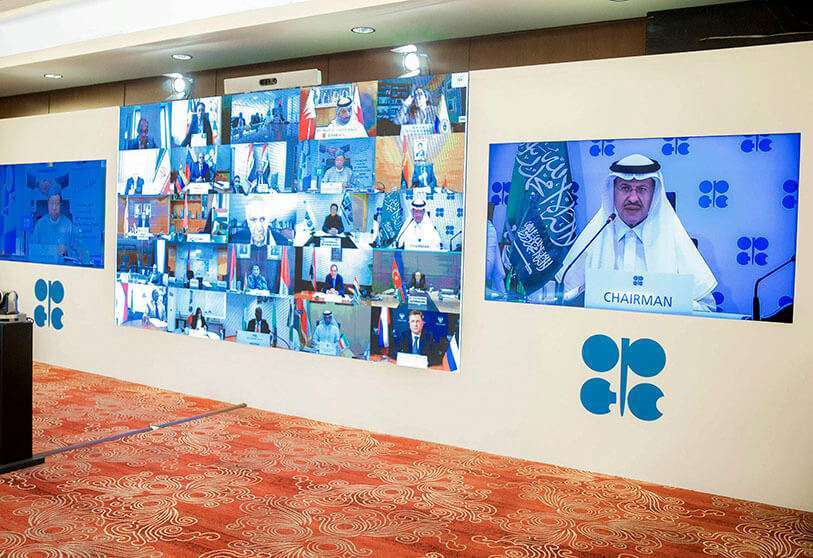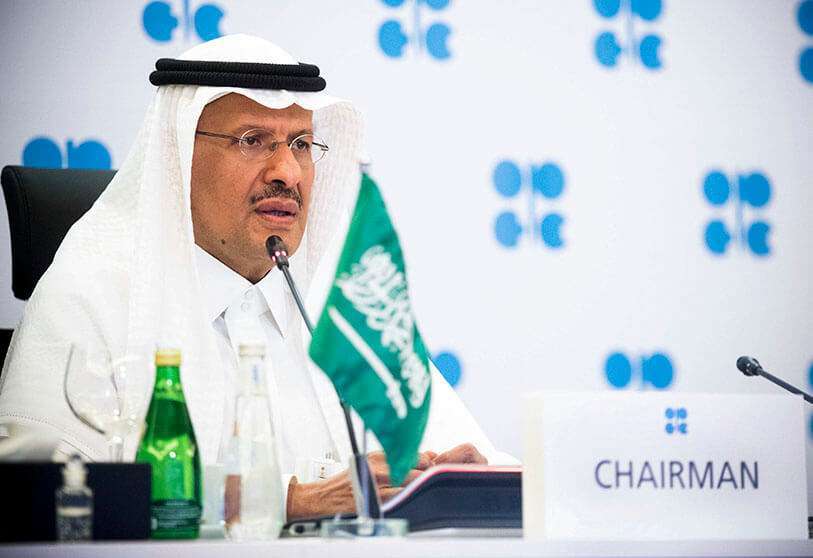Oil regains a cautious position in view of the advance of the pandemic in Latin America and Southeast Asia

Europe is starting to get going after the worst of the pandemic. Many businesses are starting to reopen, discussions are taking place on how to organise the summer holidays, and airlines are announcing the recovery of flights. This is good news for oil producers as demand gradually recovers. The Brent barrel, a benchmark for Europe and the Middle East, and the Texas barrel for the United States, have climbed positions in recent weeks and are now trading at around $40 a barrel. Despite this, analysts warn that the virus continues to cause contagion and death around the world, especially in Latin America and Southeast Asia, according to the WHO (World Health Organization). It cannot be ruled out that there will be outbreaks and new confinements of the population.
In order to react quickly to the new developments, OPEC + (Organization of Petroleum Exporting Countries and Russia), led by Saudi Arabia and Russia, has announced this Monday that they will review the market on a monthly basis and take the necessary measures to stabilize it. "We have the will and the capacity to take the necessary decisions to guarantee the stability of the market", said Abdulaziz bin Salman, the Saudi energy minister, during a press conference given by the Efe agency.
Due to the uncertainty caused by the pandemic, the organization has agreed to extend the current production cut until next July. 9.7 million barrels per day, about 10% of the world's supply, will no longer be pumped. The implementation of this cut over the past two months has helped double crude oil prices by withdrawing almost 10% of global oil supply to compensate for the collapse in demand. "All countries (...) are interested in recovering the pre-crisis price range as soon as possible," said Russian Energy Minister Alexander Novak.

The Saudi and Russian ministers agreed that it is still too early to predict production policies for August, due to the effects of the economic crisis, although they consider that demand was picking up. "The main precondition for the extension of the OPEC+ (cutback) agreement is the speed with which demand recovers," Novak said. Bin Salman also announced at the press conference that voluntary oil cuts from Saudi Arabia, the United Arab Emirates and Kuwait, totalling 1.18 million barrels per day (mbd), will not be extended beyond June, as "they had done their job".
In the midst of uncertainty about the evolution of the pandemic and its impact on the world economy, a phased plan is envisaged, with two moderate increases in pumping in anticipation of a revival in the consumption of "black gold". Thus, the cut in force from 1 May will be smaller and is expected to go from a cut of 9.7 mbd to 7.7 mbd from 1 August - and not from 1 July, as agreed in April - and to 5.7 mbd between 1 January 2021 and 30 April 2022. However, these figures may be revised if the weakness of the demand recovery makes it advisable.

Saudi Arabia and Russia, by far the largest producers in OPEC+, called on all partners to fulfil their part of the pact and reduce their pumping. It was mainly Iraq, Nigeria, Kazakhstan and Angola that failed to meet the 100 percent ceiling, and it has been necessary for these countries to promise that they will make up for their failure to give the green light to the extension next quarter. "We have no room for any kind of non-compliance. The only space we created on Saturday is that those who did not comply in May and June (...) must do so in July, August and September," the Saudi minister asked.
Non-compliance with production cuts could lead to a destabilisation of the market in the future. "The WHO has announced that COVID-19 infections and deaths are rising in Latin America and South East Asia. It's a chilling development. A second wave of the pandemic is no longer a distant possibility. Demand has slowly recovered, but it could fall again," said Bojarnar Tonhaugen, head of oil markets at consulting firm Rystad Energy, a media advisory for clients.








